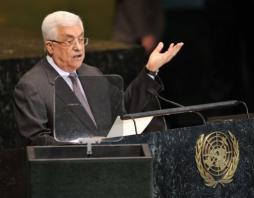By Ghassan Khatib
The regional and international environments appear increasingly less conducive to a peaceful solution to the Palestinian-Israeli conflict, especially in the short term.
The United States is preparing for coming presidential and congressional elections, and the Arab world is increasingly involved in internal revolutions that are naturally emphasizing local agendas. These factors are limiting available options and eliminating opportunities to make progress in ending our conflict peacefully.
The impact of these events on Palestinians and Israelis is not the same, however. Israel, the stronger party, feels no urgency and is taking advantage of the situation, focusing instead on the Iranian threat. It, too, will soon be engaged in the domestic distractions of an election year.
Furthermore, the ongoing rhetoric of the Iranian leadership is aiding Israel in justifying its policies and escaping its responsibilities. More importantly, Iranian tough talk reduces international pressure on Israel to act positively to resolve the Palestinian-Israeli conflict.
In contrast to Israel, changing conditions leave Palestinians with very restricted options. For Palestinians, internal and external issues are strongly interrelated. The failure of the recent Palestinian-Israeli talks in Amman, combined with the general absence of international players (especially the US) from the scene, is encouraging the Palestinian leadership to focus on reconciling the main factions Hamas and Fateh and, hopefully, bringing about new elections. That makes sense given that the chances for renewing peace negotiations with Israel are limited due to American and Israeli preoccupation with their respective elections. Palestinians see this as an opportunity to also put their house in order, in part by holding elections.
The problem is that internal Palestinian politics are deeply impacted by Israel, which controls all aspects of Palestinian life. Palestinians’ ability to hold credible elections is deeply compromised by the physical separation of the West Bank and Gaza Strip and internal dissection of the West Bank by Israeli military checkpoints and patrols. Recent Palestinian announcements regarding preparations for elections as part of the road to reconciliation have been met with implicit Israeli threats to disrupt those elections. The most obvious example was the recent (re)arrest of several elected Hamas parliamentarians, a step that appears to have been intended to remind both Fateh and Hamas of Israel’s role in the advancement of Palestinian political development. Israel seems to have sought to give both Hamas and Fateh a taste of how Israel can easily disrupt free and fair elections.
If Israel proceeds with these impediments to elections and to the process of reconciling Hamas and Fateh, the Palestinian leadership might be left with only the option of returning to the international arena and using the same tactics tried at the United Nations late last year to generate international attention for the Palestinian cause, the cause of peace, and the need to immediately end Israel’s occupation.
That would require learning some lessons from last summer’s efforts, namely focusing more on partnering with European countries, which might be ready to be additionally supportive and fill some of the vacuum created by the US elections. Hopefully, it will also mean focusing on forums where the US has no veto, such as the United Nations General Assembly and other international agencies.
Ghassan Khatib is coeditor of the bitterlemons family of internet publications and director of the Government Media Center. This article represents his personal views. This commentary is published by DAILY NEWS EGYPT in collaboration with bitterlemons.org.






